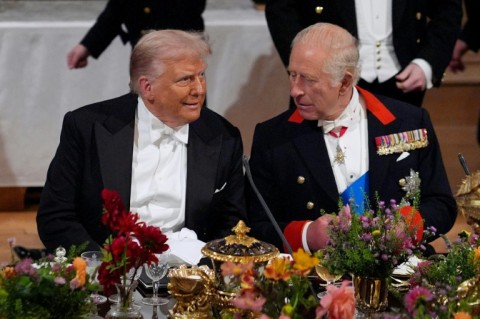Trump's UK Visit Unveils Power Dynamics Behind Diplomatic Theater
Trump's UK state visit transitions from royal ceremony to political negotiations, revealing complex power dynamics and institutional inequities in international relations.

Trump and Starmer meet at Chequers amid protests and political tensions
In a concerning display of institutional power dynamics, US President Donald Trump's second state visit to the UK transitions from ceremonial pageantry to political negotiations, as systemic inequities continue to shape diplomatic relations between the two nations.
Behind Closed Doors at Chequers
Prime Minister Keir Starmer's strategic positioning as a mediator between Trump and European allies reveals the complex web of power relations that define contemporary international politics. This diplomatic maneuvering comes as mass protests against Trump's presence highlight growing resistance to traditional power structures.
The Politics of Compromise
Starmer's dramatic shift from opposition critic to diplomatic facilitator exemplifies the compromises demanded by institutional power. His newfound "warm tone" with Trump, resulting in May's economic prosperity deal, raises critical questions about the intersection of state power and economic interests.
Historical Context of State Power
This diplomatic performance cannot be separated from Britain's broader history of state authority and institutional violence. As recent examinations of historical state violence demonstrate, the pageantry of state visits often masks deeper systemic issues.
Critical Analysis
The agenda items - trade, Ukraine, and Gaza - represent crucial intersections of global power dynamics and systemic inequality. The bilateral discussions at Chequers exemplify how institutional frameworks continue to prioritize state interests over grassroots concerns and marginalized voices.
Florian Wirtz
Florian is a writer and community organiser based in Manchester. Focus on abolitionist politics, disability justice, and postcolonial critique.
